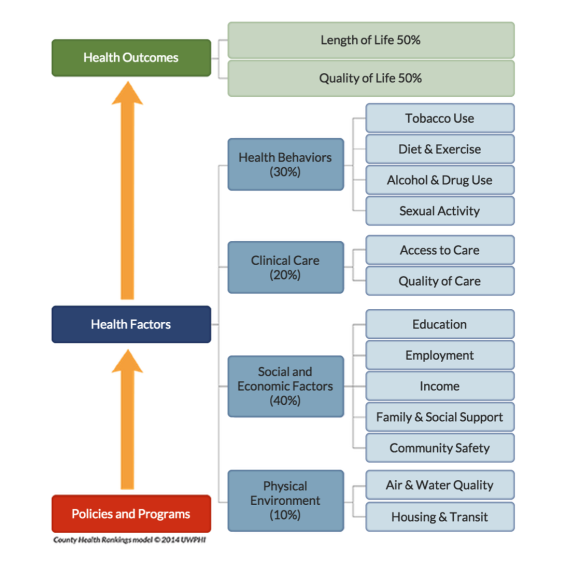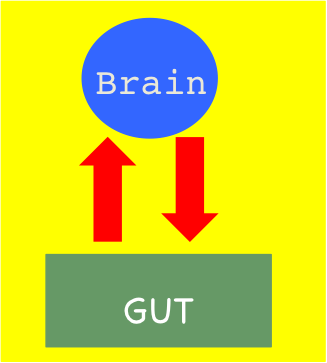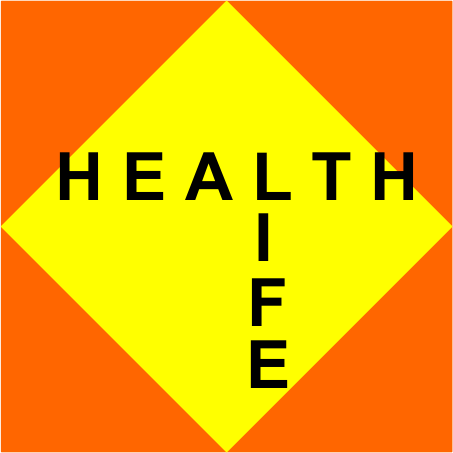Category: Patients
Clinical trial problems in the news (again)
 Randomized controlled trials (RCTs) may have lots of problems, but they remain the “gold standard” to determine whether a drug or treatment works. A recent study published in the BMJ, again raises concerns about trusting clinical trial results. The situation is outlined in an article in the New York Times about the antidepressant drug Paxil (paroxetine) and its safety in teens. The original study was published in 2001 in the Journal of the American Academy of Child and Adolescent Psychiatry (JAACAP) and the authors concluded that Paxil is “generally well tolerated and effective” for adolescents with major depression. However, since that time, experts have questioned whether the data really supports this conclusion and whether Paxil is really safe in young adults with depression.
Randomized controlled trials (RCTs) may have lots of problems, but they remain the “gold standard” to determine whether a drug or treatment works. A recent study published in the BMJ, again raises concerns about trusting clinical trial results. The situation is outlined in an article in the New York Times about the antidepressant drug Paxil (paroxetine) and its safety in teens. The original study was published in 2001 in the Journal of the American Academy of Child and Adolescent Psychiatry (JAACAP) and the authors concluded that Paxil is “generally well tolerated and effective” for adolescents with major depression. However, since that time, experts have questioned whether the data really supports this conclusion and whether Paxil is really safe in young adults with depression.
In the recent BMJ analysis, the authors looked at the data from the original 2001 study and also some additional data they were able to get from the drug company that makes Paxil, GlaxoSmithKline. They concluded that Paxil is neither safe nor effective in adolescents with depression.
Food and long life
 There is so much in the news about food that it is hard to know what to eat. But there is reason to believe that food can play an important role in health. I’ve written about the connection between food and inflammation, the effect of food on the bacteria in the gut, how food can influence the course of a disease and the importance of telling stories about food.
There is so much in the news about food that it is hard to know what to eat. But there is reason to believe that food can play an important role in health. I’ve written about the connection between food and inflammation, the effect of food on the bacteria in the gut, how food can influence the course of a disease and the importance of telling stories about food.
Recent scientific papers in medical journals have suggested that spicy food is associated with a lower risk of death and that a Southern diet is associated with a greater risk of heart disease and stroke.
However, scientific studies about diet are difficult to interpret because they often depend on people keeping track of what they eat. It is also hard to know if other factors are influencing the results, which is why both of these studies can only conclude an “association” between the particular diet and the outcome and not a “cause”.
How to pick a surgeon
 Several years ago a close friend asked me to recommend a surgeon for an elective procedure. I told her I had a colleague with a great bedside manner who also had great technical skills. He was absolutely the person I would go to if I needed general surgery. My friend went to see him but ended up using a different surgeon. When I asked her what she liked about the other guy, she said that he told her that he was “the best” surgeon to perform the procedure. She didn’t like his personality but he instilled her with confidence.
Several years ago a close friend asked me to recommend a surgeon for an elective procedure. I told her I had a colleague with a great bedside manner who also had great technical skills. He was absolutely the person I would go to if I needed general surgery. My friend went to see him but ended up using a different surgeon. When I asked her what she liked about the other guy, she said that he told her that he was “the best” surgeon to perform the procedure. She didn’t like his personality but he instilled her with confidence.
The truth is that there is no single “best” surgeon for everyone. And there are many factors that go into picking a surgeon: insurance issues, convenience, etc. And there are advantages to going to a surgeon who works well with our primary care physician (communication) and in having surgery in a place that has an electronic medical record that our primary care physician can access (coordination of care). But the most important thing is how skilled the surgeon is at performing the surgery we need. How do we figure that out? The short answer is that we don’t.
Using art to heal
 Because Health is Life, our lifestyles are just as important to our health as going to the doctor or taking our medicines. In a paper published June 30, 2015 in the Annals of Internal Medicine, a study looking at survey data found that half the heart disease deaths in the US from 2009-2010 were caused by 5 factors all of which can be modified through healthy behavior: smoking, obesity, high cholesterol, diabetes and high blood pressure. But many of these behaviors are difficult to change and are influenced by our families, our culture and our community.
Because Health is Life, our lifestyles are just as important to our health as going to the doctor or taking our medicines. In a paper published June 30, 2015 in the Annals of Internal Medicine, a study looking at survey data found that half the heart disease deaths in the US from 2009-2010 were caused by 5 factors all of which can be modified through healthy behavior: smoking, obesity, high cholesterol, diabetes and high blood pressure. But many of these behaviors are difficult to change and are influenced by our families, our culture and our community.
This picture shows that clinical care by doctors and hospitals accounts for only about 20% of health outcomes. The picture comes from a project called County Health Rankings developed by the University of Wisconsin Population Health Institute (and supported by the Robert Wood Johnson Foundation) that looks at health by county in the US. Addressing factors like cigarette smoking, income, education, employment, housing and clear air can help make communities healthier places to live.
We need to find ways to build healthier communities and the arts may be one way to accomplish this.
Personal experiments
 During my medical training, we were taught that if a patient responds to a treatment, it doesn’t necessarily mean that every patient will respond in the same way. The results in a single patient might be due to chance so it was important to look at the results of well-designed research studies before we could conclude that the treatment really worked. In statistics, “N” refers to the sample size in an experiment so we referred to these individual observations as “N-of-1” experiments (and we did not look at them very favorably).
During my medical training, we were taught that if a patient responds to a treatment, it doesn’t necessarily mean that every patient will respond in the same way. The results in a single patient might be due to chance so it was important to look at the results of well-designed research studies before we could conclude that the treatment really worked. In statistics, “N” refers to the sample size in an experiment so we referred to these individual observations as “N-of-1” experiments (and we did not look at them very favorably).
Unfortunately, there are lots of problems with research studies – they take a long time to complete, the patients in the studies are very carefully selected and may be very different from you, there is often bias in the way the results are interpreted, etc.
What if doctors and patients had tools that allowed them to design high-quality experiments specifically for the individual patient?
The bugs we live with
 Remember in elementary school science class when we put samples of our hair and saliva in Petri dishes to see what grew? We even used cotton swabs to test the surfaces of our desks and bacteria grew in a few days. These experiments were designed to show us that we have lots of bacteria inside and on our bodies – and all around us. There are microbes (bacteria, viruses, fungi, etc.) everywhere in our “built environment” – the buildings we live and work in – as seen in this incredible animation.
Remember in elementary school science class when we put samples of our hair and saliva in Petri dishes to see what grew? We even used cotton swabs to test the surfaces of our desks and bacteria grew in a few days. These experiments were designed to show us that we have lots of bacteria inside and on our bodies – and all around us. There are microbes (bacteria, viruses, fungi, etc.) everywhere in our “built environment” – the buildings we live and work in – as seen in this incredible animation.
Research suggests that the microbes in our guts play an important role in the development of disease. This collection of organisms, referred to as the microbiome (although technically the collection of organisms is called the microbiota and the genes of those organisms are called the microbiome), may play a role in the development of many diseases including diabetes, obesity, rheumatoid arthritis, asthma, allergies, Crohn’s disease, autism and cancer.
Listen up
 Like millions of other people, I became hooked on “Serial”, the 12 episode podcast series that launched in late 2014 investigating the murder of a teenage girl in Baltimore in 1999 (that included phone conversations from prison with her personable ex-boyfriend who was convicted of the crime).
Like millions of other people, I became hooked on “Serial”, the 12 episode podcast series that launched in late 2014 investigating the murder of a teenage girl in Baltimore in 1999 (that included phone conversations from prison with her personable ex-boyfriend who was convicted of the crime).
I don’t listen to a lot of podcasts but this was different. It was chatty, used a lot of personal stories and was the perfect thing to listen to while driving, walking or cooking. And I couldn’t wait for the next episode (nor could my 84-year-old mother or my 20-something daughters). Devoting over 10 hours to the program was not only easy but enjoyable. In the process we listeners also learned stuff – about the workings of the legal system, the nature of truth, the problems with first-hand accounts, the limitations of memory and much more.
It was like nothing I had ever experienced before and got me thinking about how we could use a similar strategy in healthcare.
Vaccines and trust
 Many years ago I worked in a travel clinic advising people about the immunizations they needed before visiting other countries. Sometimes shots were required for entry into a country, such as the yellow fever vaccine. But we also made sure that MMR (measles-mumps-rubella) and other vaccines were up-to-date. The reason was that while immunizations have been very successful in getting rid of measles (and other childhood illnesses) in the US, many countries still have outbreaks. The booster shots were not necessary in the US because we no longer had cases of measles. Until now.
Many years ago I worked in a travel clinic advising people about the immunizations they needed before visiting other countries. Sometimes shots were required for entry into a country, such as the yellow fever vaccine. But we also made sure that MMR (measles-mumps-rubella) and other vaccines were up-to-date. The reason was that while immunizations have been very successful in getting rid of measles (and other childhood illnesses) in the US, many countries still have outbreaks. The booster shots were not necessary in the US because we no longer had cases of measles. Until now.
We are seeing cases of measles (and other childhood illnesses) again because parents are increasingly refusing to get their kids vaccinated. The current outbreak of measles in California is causing a lot of public debate about how to force people to get their kids vaccinated. While we may need to find new ways to enforce vaccination, we also need to restore trust – people increasingly don’t trust doctors, pharmaceutical companies, government agencies or payers.
Health is life
When I was an infectious diseases specialist, most of the patients I saw were hospital inpatients but I also saw a few outpatients. They came to see me because of weeks or months of symptoms that their doctors couldn’t figure out and were often worried that they had a mysterious infection that was hard to diagnose. All of these patients had real symptoms – they were extremely tired, had headaches, muscle pains and sore throats. They generally arrived with stacks of medical records – numerous lab tests and notes from other doctors. I also noticed that many of them had serious “real life” problems – bad marriages, difficulties at work, housing problems, sick relatives and more. Perhaps they really did have an infection that I couldn’t find but I also began to wonder if their symptoms were caused by the stress.
My intuition was that many of these patients would benefit from speaking with a social worker, marriage counselor, psychologist, an expert in finding affordable housing or a financial planner. Unfortunately, these services were not part of our health care system. I suspected that many of my patients would get better if we were able to treat the whole patient, not just the symptoms.
The gut and the brain
 We don’t normally think about the gut and the brain being connected. And yet many of us have gotten a stomach ache, nausea or diarrhea from stress or a feeling of “butterflies” from excitement. Or we may experience pleasure from certain foods or feel a need to eat when under stress.
We don’t normally think about the gut and the brain being connected. And yet many of us have gotten a stomach ache, nausea or diarrhea from stress or a feeling of “butterflies” from excitement. Or we may experience pleasure from certain foods or feel a need to eat when under stress.
The vagus nerve travels between the brain and other organs in the body and can transmit messages in both directions. The brain can send messages to the gut through chemicals (called neurotransmitters). The gut has its own nervous system (called the enteric nervous system or ENS) that controls digestion. But scientists now think that the ENS can also produce neurotransmitters to send to the brain.
The big question is whether the gut can actually cause symptoms and diseases of the nervous system.
